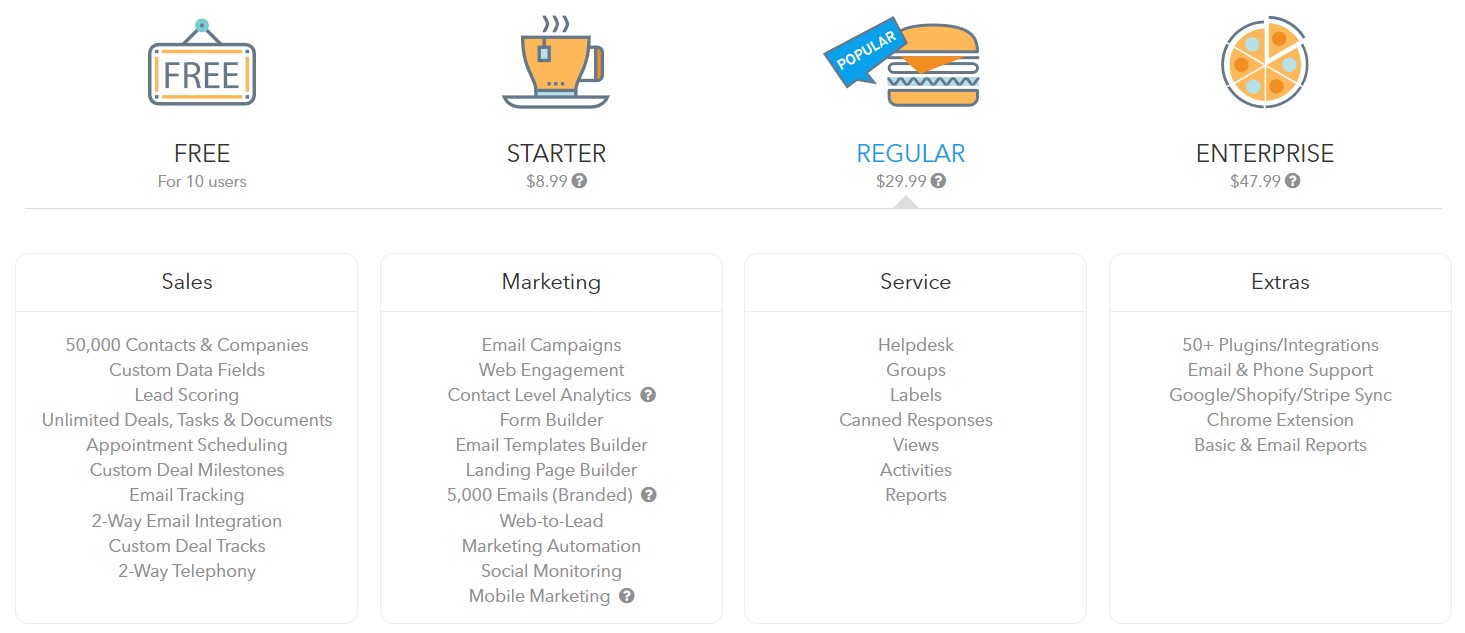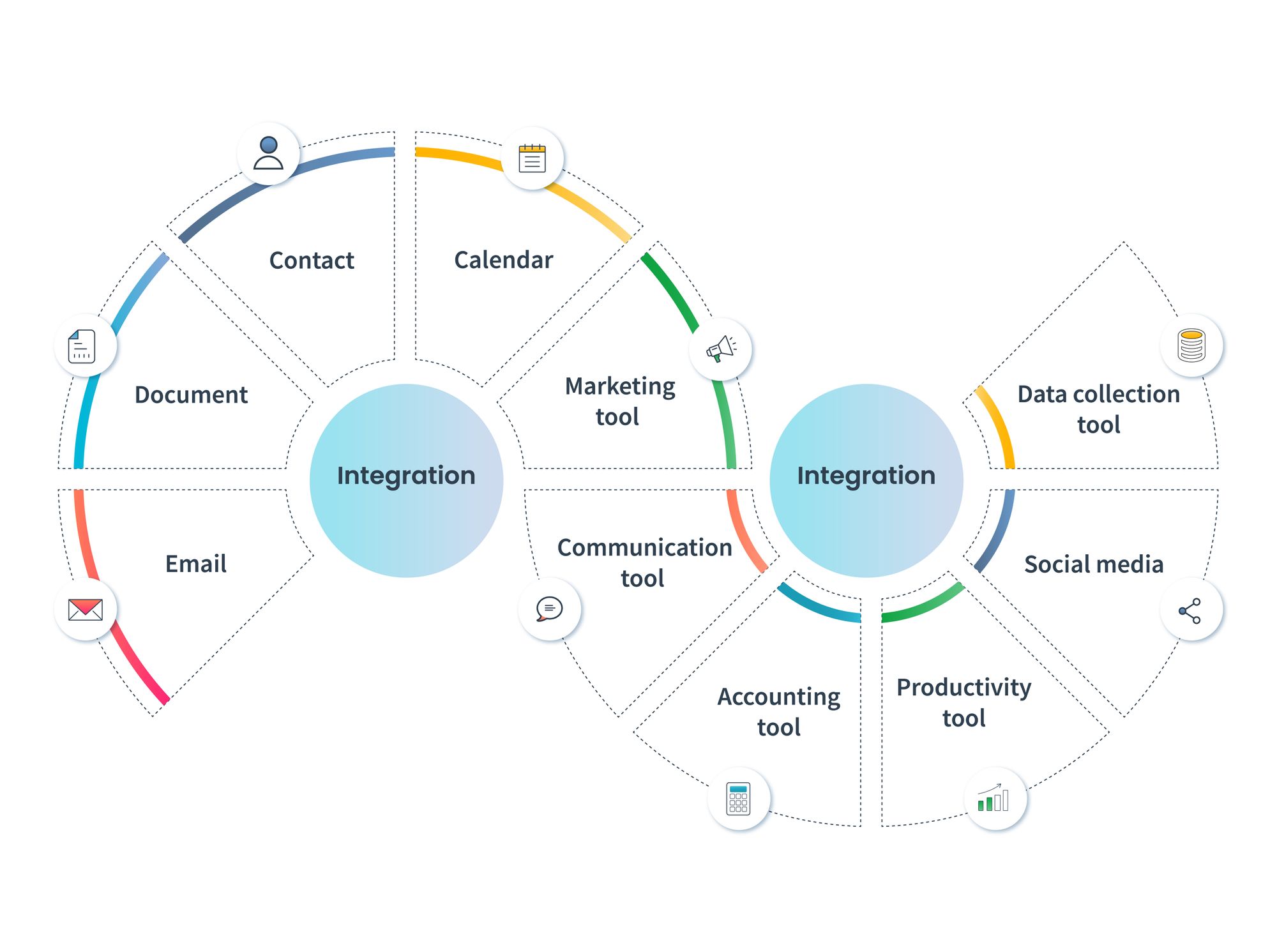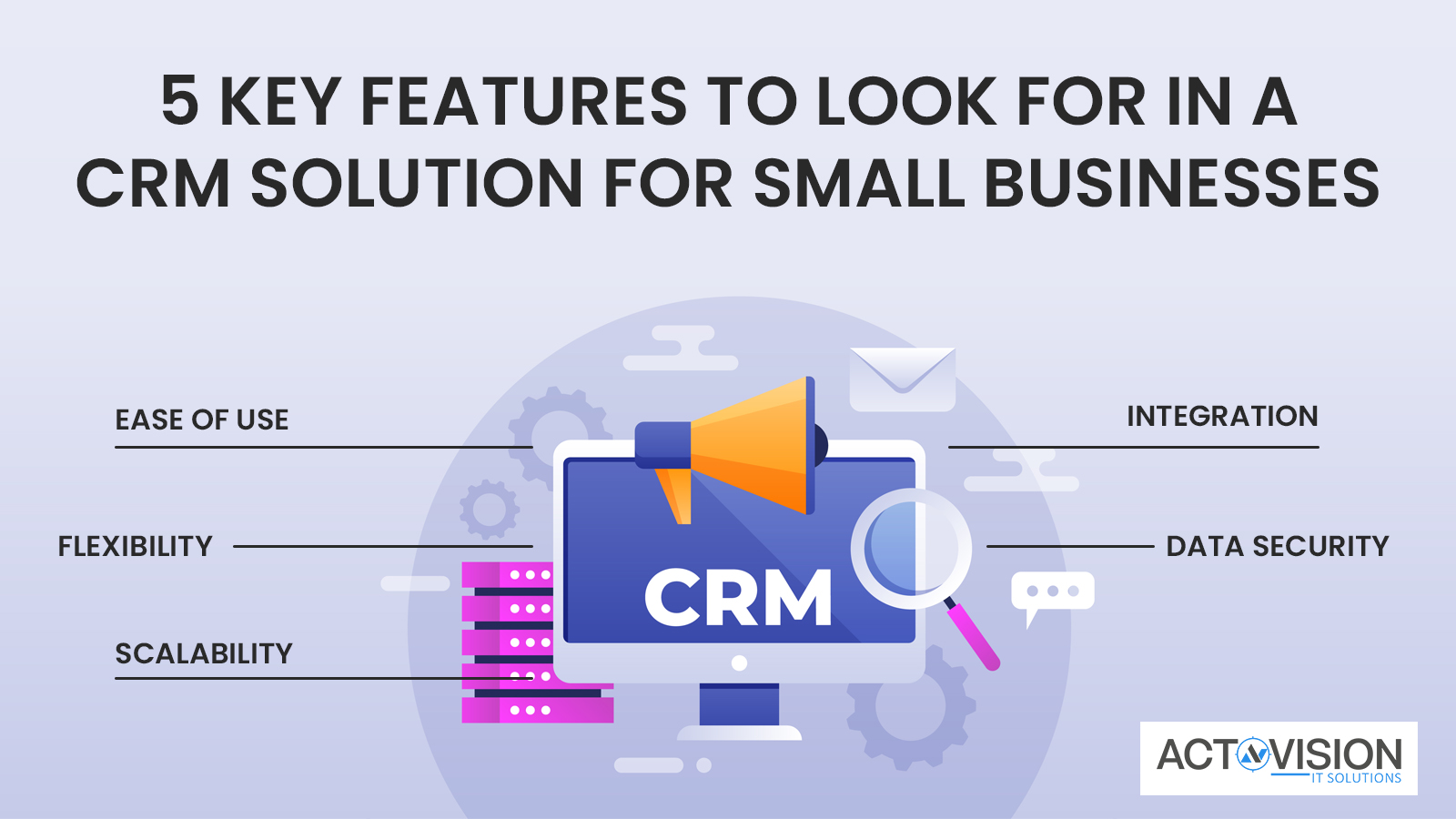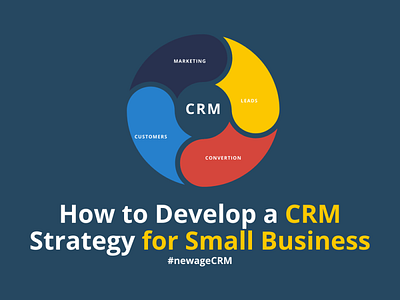Small Business CRM Strategies 2025: Your Roadmap to Customer Relationship Mastery
Small Business CRM Strategies 2025: Your Roadmap to Customer Relationship Mastery
The business landscape is constantly evolving, and in the coming years, the importance of customer relationships will only intensify. For small businesses, mastering customer relationship management (CRM) isn’t just a good idea; it’s a survival strategy. CRM systems are no longer a luxury reserved for large corporations; they are essential tools that empower small businesses to compete, grow, and thrive. This article dives deep into the small business CRM strategies that will define success in 2025 and beyond. We’ll explore the trends, technologies, and best practices you need to know to build lasting customer relationships and drive sustainable growth.
Why CRM Matters for Small Businesses in 2025
In 2025, the competitive environment will be fiercer than ever. Customers will have more choices, higher expectations, and less patience. A strong CRM strategy is the bedrock of success for several compelling reasons:
- Enhanced Customer Experience: CRM allows you to personalize interactions, anticipate needs, and provide exceptional service, leading to higher customer satisfaction and loyalty.
- Improved Efficiency: Automate tasks, streamline workflows, and free up your team to focus on higher-value activities.
- Data-Driven Decision Making: Gain valuable insights into customer behavior, sales performance, and marketing effectiveness.
- Increased Sales and Revenue: Identify and nurture leads, close deals faster, and upsell or cross-sell products and services.
- Cost Reduction: Optimize marketing campaigns, reduce operational costs, and improve resource allocation.
Key Trends Shaping CRM in 2025
Several key trends will significantly impact how small businesses approach CRM in 2025. Staying ahead of these trends is crucial for gaining a competitive advantage.
1. AI-Powered CRM
Artificial intelligence (AI) will be deeply integrated into CRM systems. Expect to see:
- Predictive Analytics: AI will analyze customer data to predict future behavior, identify potential churn, and recommend personalized offers.
- Automated Chatbots: AI-powered chatbots will handle customer inquiries, provide instant support, and qualify leads.
- Sales Automation: AI will automate repetitive sales tasks, such as email follow-ups and lead scoring, allowing sales teams to focus on closing deals.
- Sentiment Analysis: AI will analyze customer interactions (emails, social media posts, etc.) to gauge sentiment and identify potential issues.
2. Hyper-Personalization
Customers will demand highly personalized experiences. CRM systems will need to support:
- Personalized Content: Tailor website content, email campaigns, and product recommendations to individual customer preferences.
- Personalized Communication: Use customer data to personalize every interaction, from greetings to product suggestions.
- Personalized Pricing: Offer dynamic pricing based on customer behavior, purchase history, and other factors.
3. Mobile-First CRM
Mobile devices will be the primary way customers interact with businesses. CRM systems must be optimized for mobile use:
- Mobile Apps: Provide dedicated mobile apps that allow sales and service teams to access CRM data on the go.
- Responsive Design: Ensure the CRM interface is responsive and adapts seamlessly to different screen sizes.
- Location-Based Services: Leverage location data to personalize offers and provide contextually relevant information.
4. Data Privacy and Security
Data privacy regulations will become stricter. Small businesses must prioritize data security and compliance:
- GDPR and CCPA Compliance: Ensure your CRM system complies with relevant data privacy regulations.
- Data Encryption: Protect customer data with robust encryption methods.
- User Access Control: Implement strict access control to limit who can access sensitive customer information.
5. Integration and Interoperability
CRM systems must integrate seamlessly with other business tools:
- Integration with Marketing Automation: Connect CRM with marketing automation platforms to streamline lead nurturing and campaign management.
- Integration with E-commerce Platforms: Sync customer data and purchase history with your e-commerce platform for personalized experiences.
- Integration with Social Media: Track customer interactions on social media and integrate them into your CRM system.
Selecting the Right CRM System for Your Small Business
Choosing the right CRM system is critical. Consider these factors:
- Ease of Use: The system should be intuitive and easy to learn, especially for non-technical users.
- Features: Choose a system with the features you need, such as contact management, sales automation, marketing automation, and customer service.
- Scalability: The system should be able to scale as your business grows.
- Integration: Ensure the system integrates with your existing tools, such as email, accounting software, and marketing platforms.
- Cost: Consider the pricing structure and choose a system that fits your budget.
- Support: Look for a system with excellent customer support and training resources.
- Mobile Accessibility: Ensure the CRM has a strong mobile app or is fully optimized for mobile devices.
Here are some popular CRM systems suitable for small businesses:
- HubSpot CRM: Offers a free plan with robust features, making it a great option for startups.
- Zoho CRM: Provides a comprehensive suite of features at a competitive price.
- Salesforce Essentials: A simplified version of Salesforce designed for small businesses.
- Pipedrive: Focuses on sales pipeline management and is easy to use.
- Freshsales: Offers a user-friendly interface and excellent customer support.
Implementing Your CRM Strategy: A Step-by-Step Guide
Implementing a CRM system successfully requires a well-defined strategy. Follow these steps:
1. Define Your Goals and Objectives
What do you want to achieve with your CRM system? Examples include increasing sales, improving customer satisfaction, and streamlining workflows. Set specific, measurable, achievable, relevant, and time-bound (SMART) goals.
2. Choose Your CRM System
Based on your goals and objectives, evaluate different CRM systems and choose the one that best fits your needs.
3. Plan Your Data Migration
Plan how you will migrate your existing customer data to the new CRM system. Cleanse and organize your data to ensure accuracy.
4. Customize Your CRM System
Tailor the CRM system to your specific business processes. Customize fields, workflows, and reports to meet your needs.
5. Train Your Team
Provide thorough training to your team on how to use the CRM system. Ensure everyone understands how to enter, access, and manage customer data.
6. Implement Your CRM Strategy
Roll out the CRM system and begin using it to manage your customer relationships.
7. Monitor and Evaluate
Track key metrics, such as sales performance, customer satisfaction, and lead conversion rates. Regularly review your CRM strategy and make adjustments as needed.
8. Integrate and Automate
Integrate your CRM with other business tools and automate repetitive tasks to improve efficiency.
Best Practices for Small Business CRM in 2025
To maximize the effectiveness of your CRM strategy, consider these best practices:
- Focus on Customer-Centricity: Put the customer at the center of everything you do.
- Personalize Every Interaction: Tailor your communications and offers to individual customer preferences.
- Build a Strong Customer Database: Maintain accurate and up-to-date customer data.
- Use Automation Wisely: Automate repetitive tasks to save time and improve efficiency.
- Track Key Metrics: Monitor key performance indicators (KPIs) to measure the effectiveness of your CRM strategy.
- Provide Excellent Customer Service: Respond to customer inquiries promptly and resolve issues effectively.
- Foster a Culture of Continuous Improvement: Regularly review your CRM strategy and make adjustments as needed.
- Leverage Social Media: Use social media to engage with customers, monitor brand mentions, and provide customer support.
- Prioritize Data Security: Protect customer data with robust security measures.
- Stay Informed: Keep abreast of the latest CRM trends and technologies.
Leveraging CRM for Marketing Success
CRM is a powerful tool for marketing. Here’s how to leverage it:
- Lead Generation: Use CRM to track leads, identify their interests, and nurture them through the sales funnel.
- Targeted Campaigns: Segment your customer base and create targeted marketing campaigns based on their demographics, behavior, and purchase history.
- Personalized Email Marketing: Send personalized email campaigns to customers based on their interests and past purchases.
- Social Media Integration: Integrate your CRM with social media platforms to track customer interactions and manage social media campaigns.
- Marketing Automation: Use marketing automation tools to automate repetitive marketing tasks, such as email follow-ups and lead nurturing.
- Measure and Optimize: Track the performance of your marketing campaigns and make adjustments as needed.
Sales Automation with CRM: Boosting Productivity
CRM systems help sales teams become more efficient and effective through automation:
- Automated Lead Scoring: Automatically score leads based on their behavior and demographics.
- Automated Email Sequences: Set up automated email sequences to nurture leads and follow up with prospects.
- Automated Task Creation: Automatically create tasks for sales reps, such as follow-up calls and meetings.
- Sales Reporting: Generate sales reports to track performance and identify areas for improvement.
- Pipeline Management: Visualize the sales pipeline and track the progress of deals.
- Quote Generation: Generate professional-looking quotes quickly and easily.
Customer Service Excellence with CRM
CRM enhances customer service capabilities:
- 360-Degree Customer View: Access a complete view of each customer, including their purchase history, support tickets, and interactions.
- Ticketing System: Manage customer support tickets and track their resolution.
- Self-Service Portal: Provide a self-service portal where customers can find answers to their questions.
- Live Chat: Offer live chat support to provide instant assistance.
- Knowledge Base: Create a knowledge base of articles and FAQs to help customers find answers to their questions.
- Feedback Collection: Collect customer feedback to improve your products and services.
Overcoming CRM Challenges in Small Businesses
Implementing and managing a CRM system can present challenges. Here’s how to overcome them:
- Lack of Buy-In: Get buy-in from all team members by demonstrating the benefits of CRM.
- Data Entry Issues: Ensure data accuracy by implementing data entry best practices and training.
- Integration Problems: Choose a CRM system that integrates with your existing tools.
- Lack of Training: Provide thorough training to your team on how to use the CRM system.
- Poor Data Quality: Regularly cleanse and update your customer data.
- Resistance to Change: Address resistance to change by communicating the benefits of CRM and providing ongoing support.
- Measuring ROI: Track key metrics to demonstrate the return on investment (ROI) of your CRM system.
The Future of CRM: What to Expect Beyond 2025
The future of CRM is bright, with continued innovation and advancements. Expect to see:
- More Sophisticated AI: AI will become even more sophisticated, providing more personalized experiences and automating more tasks.
- The Rise of the Metaverse: CRM systems may integrate with the metaverse to provide immersive customer experiences.
- Emphasis on Privacy and Security: Data privacy and security will become even more critical, with stricter regulations and advanced security measures.
- Increased Integration: CRM systems will integrate with even more business tools, creating a seamless ecosystem.
- Focus on Sustainability: CRM systems may incorporate sustainability features, such as tracking carbon emissions and promoting environmentally friendly practices.
Conclusion: Embrace CRM for a Successful Future
In 2025 and beyond, a robust CRM strategy will be essential for small businesses to thrive. By embracing the latest trends, selecting the right CRM system, and implementing best practices, you can build strong customer relationships, improve efficiency, and drive sustainable growth. The future of your business depends on your ability to understand and adapt to the changing needs of your customers. CRM is the key to unlocking that success. Start planning your CRM strategy today and position your business for a bright future!





